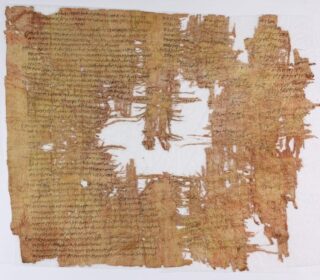A groundbreaking discovery by researchers at Johns Hopkins University has shed new light on the origins of the alphabet. The finding, which dates back to around 2400 BCE, suggests that the alphabet may not have originated in Egypt as previously believed.
Ancient Clay Cylinders Hold the Key
The discovery was made during an archaeological dig at the ancient city of Umm el-Marra in Syria. The team, led by Professor Glenn Schwartz, uncovered four lightly baked clay cylinders with what appeared to be alphabetic writing on them. The cylinders were found in a tomb dating back to the Early Bronze Age, along with other artifacts such as gold and silver jewelry, cookware, and intact pottery vessels.
Challenging the Conventional Wisdom
The discovery is significant because it challenges the conventional wisdom that the alphabet was invented in Egypt around 1900 BCE. The finding suggests that the alphabet may have an entirely different origin story, one that predates the Egyptian civilization.
The Significance of the Discovery
The discovery is a game-changer for our understanding of the origins of the alphabet. It suggests that the development of the alphabet was a more complex and nuanced process than previously thought. The finding also highlights the importance of continued archaeological research and discovery in shedding new light on our understanding of human history.
What’s Next?
The discovery is just the beginning. The researchers are now working to translate the writing on the clay cylinders, which could provide further insights into the origins of the alphabet. The finding also raises questions about the spread of the alphabet across ancient civilizations and the role it played in shaping human history.
Conclusion
The discovery of the ancient clay cylinders with alphabetic writing is a significant breakthrough in our understanding of the origins of the alphabet. It challenges our conventional wisdom and highlights the importance of continued archaeological research and discovery. As we continue to unravel the secrets of the past, we may uncover even more surprises that challenge our understanding of human history.

















